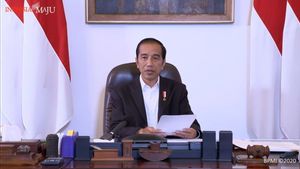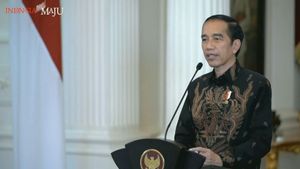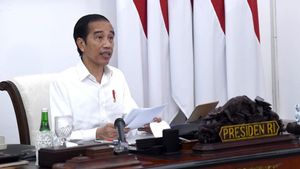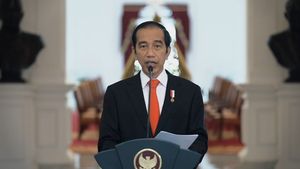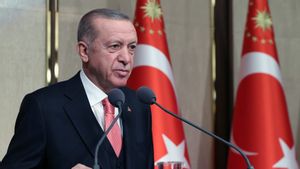JAKARTA - The government is preparing to revise Law Number 19 of 2016 concerning Electronic Information and Transactions (UU ITE). A number of articles in the ITE Law are considered to have many catchall articles.
Lingkar Madani (Lima) Political Observer, Ray Rangkuti, welcomed the discourse. Provided, if the ITE Law has been revised, the police as an apparatus must be good listeners for people who criticize the government's performance.
"The government must open as wide as possible for public channels to make our government stable in difficult situations. All officers are expected to be good listeners," Ray said on Friday, February 19.
Ray said that currently the community has been plagued with various problems. Starting from the health crisis due to the COVID-19 pandemic, weakening economic conditions for residents affected by the loss, and loss of jobs.
So, said Ray, it will become a burden of new problems if the government silences public criticism, who are psychologically depressed and need to be heard.
"So if the four of them are really difficult, then it is dangerous. For whom? For the president himself. The economy is not working, the unemployment is getting bigger, then health is also threatened, at the same time you cannot say anything, you cannot criticize," he said.
SEE ALSO:
Three catchall articles that must be revised
Political analyst from Exposit Strategic, Arif Susanto, said there were three problematic articles in the ITE Law. The first is Article 27 paragraph (1) concerning distributing and/or transmitting and/or making accessible electronic information and/or electronic documents that have contents violating decency.
Unfortunately, this article often ensnares those who broadcast content that violates decency. Because, said Arif, in some cases the victims were actually convicted.
"For example, someone has intimate content. The content is distributed. The problem is not only the perpetrator who distributed the content, but also those who recorded it, then he was charged with this article which actually has multiple interpretations," said Arif.
The second is Article 27 (3) regarding the alleged content of electronic defamation information. According to Arif, many cases could have been resolved through mediation. Unfortunately, this article opens the room for related parties to be convicted.
The third is Article 28 paragraph (2) about hate speech in the information or electronic documents leading to ethnicity, religion, race, and inter-group (SARA).
"For example, if I say something wrong or make a typo so that I share something offensive to other people. Supposedly, the contents of the insult must be made specifically so that they are not like a catchall article," he said.
The English, Chinese, Japanese, Arabic, and French versions are automatically generated by the AI. So there may still be inaccuracies in translating, please always see Indonesian as our main language. (system supported by DigitalSiber.id)



